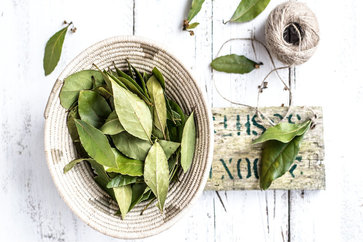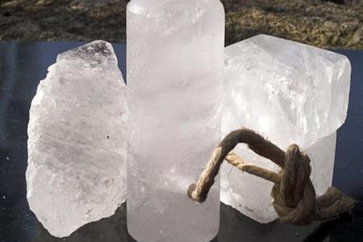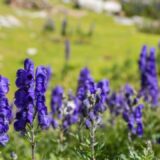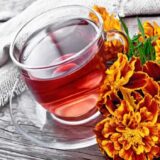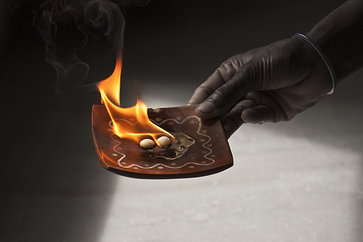10 Anti Ageing Herbs That Can Help You Look Younger Natural
In the quest for maintaining a youthful appearance and promoting overall well-being, many people turn to natural remedies. Anti-aging herbs have gained popularity for their potential to slow down the aging process and provide various health benefits. 
These herbs, packed with antioxidants, vitamins, and minerals, help combat oxidative stress, reduce inflammation, and support overall vitality. In this article, we will explore the top 10 anti-aging herbs that can help you look and feel younger naturally.
As we age, our bodies undergo various changes, both internally and externally. While the aging process is natural, there are ways to slow it down and enhance our overall health.
Anti-aging herbs have been used for centuries in traditional medicine systems for their potential to promote longevity and support youthful vitality. Let’s explore the top 10 anti-aging herbs and how they can benefit us.
Why is Your Skin Aging Faster Than You Are
Your skin can age faster than your actual age due to various factors, as mentioned in your provided information:
1. Cold Weather: Prolonged exposure to cold weather can lead to dry skin, which can accelerate the aging process. Cold air tends to be less humid, and this lack of moisture can make your skin appear dull and fine lines more noticeable.
2. Sun Exposure: Excessive exposure to the sun’s harmful UV rays is a significant contributor to premature aging. UV radiation can damage the collagen and elastin fibers in your skin, leading to sagging, wrinkles, and age spots. It’s essential to protect your skin from the sun with sunscreen and protective clothing.
3. Smoking: Smoking is detrimental to your skin in multiple ways. It can deplete your body’s vitamin C levels, which is crucial for maintaining healthy and plump skin. Additionally, smoking restricts blood flow to the skin, reducing its ability to receive essential nutrients and oxygen, ultimately leading to premature aging.
4. Stress: High levels of stress can compromise your skin’s barrier function, making it more susceptible to environmental damage. Stress can also disrupt your sleep patterns, leading to dark circles and skin sagging. Managing stress through relaxation techniques can help mitigate its negative impact on your skin.
5. Alcohol: Alcohol is dehydrating, and excessive alcohol consumption can lead to dry and dehydrated skin. Dehydrated skin is more prone to developing wrinkles and fine lines. Reducing alcohol intake and staying hydrated can help maintain skin health.
Tips: Protecting your skin from excessive sun exposure, quitting smoking, managing stress, and maintaining a balanced lifestyle can help slow down the aging process and keep your skin looking youthful.
10 Indian Herbs for Skin Tightening
Discover 10 Indian herbs renowned for their skin-tightening properties, promoting a youthful and firm complexion naturally.
1. Ginseng
Properties: Adaptogenic, rich in antioxidants.
Skin Benefits: Protects skin from free radicals, reduces signs of aging, and promotes balance in the body.
2. Turmeric
Properties: Contains curcumin with strong antioxidant and anti-inflammatory properties.
Skin Benefits: Combats oxidative stress, reduces inflammation, and supports healthy aging.
3. Ginkgo Biloba
Properties: Contains antioxidants, and supports cardiovascular health.
Skin Benefits: Protects against cellular damage, improves cognitive function, and may alleviate anxiety and depression symptoms.
4. Ashwagandha
Properties: Adaptogenic, cortisol level reduction.
Skin Benefits: Reduces stress-related aging, supports cognitive function, and boosts energy.
5. Gotu Kola (Centella Asiatica)
Properties: Rich in triterpenoids, supports collagen production.
Skin Benefits: Enhances skin elasticity, reduces wrinkles, and supports mental clarity.
6. Moringa
Properties: Nutrient-rich, high in antioxidants.
Skin Benefits: Protects against free radicals, promotes youthful skin, and has anti-inflammatory properties.
7. Rhodiola Rosea
Properties: Adaptogenic, boost vitality.
Skin Benefits: Reduces fatigue, enhances cognitive function, and promotes overall well-being.
8. Holy Basil (Tulsi)
Properties: Adaptogenic, antioxidant-rich.
Skin Benefits: Combats stress, reduces inflammation, protects against age-related diseases, and supports hormonal balance.
9. Rosemary
Properties: Contains potent antioxidants.
Skin Benefits: Neutralizes free radicals, prevents cellular damage, and has anti-inflammatory properties. It also supports digestion and cognitive function.
10. Calendula
Properties: Anti-inflammatory, soothing.
Skin Benefits: Calendula is known for its gentle, soothing properties and is often used to relieve skin irritation and promote healing in minor skin conditions.
DIY Recipe – How to Use Amla for Anti-aging
Amla, also known as Indian gooseberry, has been revered in Ayurvedic medicine for its numerous health benefits, including its potential to combat the signs of aging. Here are some ways to use amla for anti-aging, along with a DIY recipe:
1. Amla Juice: Amla is rich in antioxidants and vitamin C, both of which are beneficial for reducing the signs of aging and promoting overall skin health. To make amla juice, follow these steps:
- Take fresh amla fruits and wash them thoroughly.
- Remove the seeds and chop the amla into smaller pieces.
- Blend the chopped amla with a little water in a blender or juicer.
- Strain the mixture to extract the juice.
- Drink this amla juice daily to benefit from its anti-aging properties.
2. Amla Face Mask: Amla can be used topically as a face mask to reduce fine lines and wrinkles while brightening the skin. Here’s how to make an Amla face mask:
- Mix 1 tablespoon of amla powder with 1 tablespoon of honey and 1 tablespoon of plain yogurt to form a paste.
- Apply the Amla face mask evenly to your face.
- Leave it on for 15-20 minutes.
- Rinse off the mask with warm water.
- This mask can be used once or twice a week to improve skin texture and combat aging signs.
3. Amla Hair Mask: Amla is not only beneficial for the skin but also for promoting healthy hair growth and preventing premature graying. To create an amla hair mask:
- Mix 1 tablespoon of amla powder with 2 tablespoons of coconut oil to form a paste.
- Apply the mixture to your hair and scalp, massaging it gently.
- Leave the mask on for at least 30 minutes to nourish your hair.
- Afterward, wash your hair with a mild shampoo.
- This hair mask can be used regularly to strengthen and rejuvenate your hair.
Amla is considered a safe and effective natural remedy for anti-aging and overall health. However, it’s always a good practice to consult with a healthcare professional.
Especially if you have underlying health conditions or are taking medications, before incorporating amla into your wellness routine.
How to Use Herbs for Anti-aging Skincare
Using herbs for anti-aging is a natural and holistic approach to maintaining youthful skin and overall health. Here are some ways to incorporate herbs into your anti-aging routine:
1. Herbal Tea: Herbal teas are rich in antioxidants, which can help reduce the signs of aging and promote overall health. Some excellent anti-aging herbs to make herbal teas include:
- Green tea: Known for its high levels of antioxidants.
- Rooibos: Contains antioxidants and is caffeine-free.
- Hibiscus: Packed with antioxidants and vitamin C.
- Chamomile: Known for its soothing properties.
2. Herbal Face Masks: Herbal face masks can nourish and rejuvenate the skin, diminishing the appearance of fine lines and wrinkles. Here’s how to create herbal face masks:
- Use herbs such as amla, turmeric, rose, or lavender, which are known for their anti-aging properties.
- Mix these herbs with other natural ingredients like honey, yogurt, and aloe vera to tailor the mask to your skin type.
- Apply the mask to your face, leave it on for 15-20 minutes, and then rinse it off.
3. Herbal-Infused Oils: Infusing oils with anti-aging herbs like rosemary, lavender, and calendula can create a nourishing and moisturizing face oil. Apply this oil to your skin to reduce the appearance of fine lines and wrinkles.
4. Herbal Supplements: Taking herbal supplements can support overall health and help reduce the signs of aging. Some beneficial herbs for anti-aging supplements include:
- Ginseng: Known for its adaptogenic properties and potential to improve vitality.
- Ashwagandha: An adaptogen that may help reduce stress and support well-being.
- Ginkgo Biloba: Known for its potential cognitive benefits and antioxidant properties.
Note: When using herbs for anti-aging, it’s crucial to select high-quality herbs and follow safe and effective preparation methods. Additionally, consult with a healthcare professional before incorporating herbal remedies.
What Herbs Tighten Loose Skin?
Several anti-aging herbs are known for their skin-tightening properties. Here are some effective anti-aging herbs that can help tighten the skin:
1. Aloe Vera: Aloe vera is known for its moisturizing properties and can help tighten and firm the skin. It contains polysaccharides that stimulate collagen production, leading to improved skin texture.
2. Cucumber: Cucumber is a natural astringent that can tighten the skin and minimize the appearance of pores. It’s also rich in antioxidants, which protect the skin from free radical damage.
3. Gotu Kola: Gotu kola has a long history of use in traditional medicine for skin health. It contains triterpenoids, compounds that can improve skin elasticity and firmness, making it appear more youthful.
4. Witch Hazel: Witch hazel is a natural astringent that is commonly used in skincare products. It can help tighten and tone the skin, reduce the appearance of pores, and improve skin texture.
5. Rosemary: Rosemary has been found to stimulate collagen production, a protein crucial for maintaining skin’s firmness and elasticity. Using rosemary in skincare products or as an essential oil may promote skin tightening.
Frequently Asked Questions (FAQs)
1. Can I consume these herbs in the form of supplements?
Yes, many of these herbs are available in supplement form. However, it’s important to consult with a healthcare professional before starting any new supplements to ensure they are suitable for you.
2. How long does it take to see the effects of these anti-aging herbs?
The time it takes to see noticeable effects may vary from person to person. Consistency is key, and it may take several weeks or months of regular use to experience significant benefits.
3. Are there any side effects associated with these herbs?
When used in moderation, these herbs are generally safe for most people. However, it’s always advisable to start with small doses and monitor your body’s response. If you have any underlying medical conditions or are taking medications, consult a healthcare professional before using these herbs.
While these herbs offer potential health benefits, they should not be considered as a substitute for medical treatments. If you have specific health concerns, it’s crucial to seek professional medical advice.
5. Can these herbs be used by everyone, regardless of age?
These herbs are generally safe for adults. However, specific considerations should be made for pregnant or breastfeeding individuals, as well as children. It’s best to consult with a healthcare professional to determine the appropriate use for different age groups.
References:
- Mechanistic role and potential of Ayurvedic herbs as anti-aging therapies(1)
- Effects of Ayurveda on Ageing: A Study(2)
- Ayurveda and Anti-Aging Herbs: A Workshop with neuroscientist Dr. Ram Rao(3)
- Ayurveda and the science of aging(4)
- Theories and Management of Aging: Modern and Ayurveda Perspectives(5)
- ANTI-AGEING NATURAL HERBS: A SYSTEMIC REVIEW(6)

